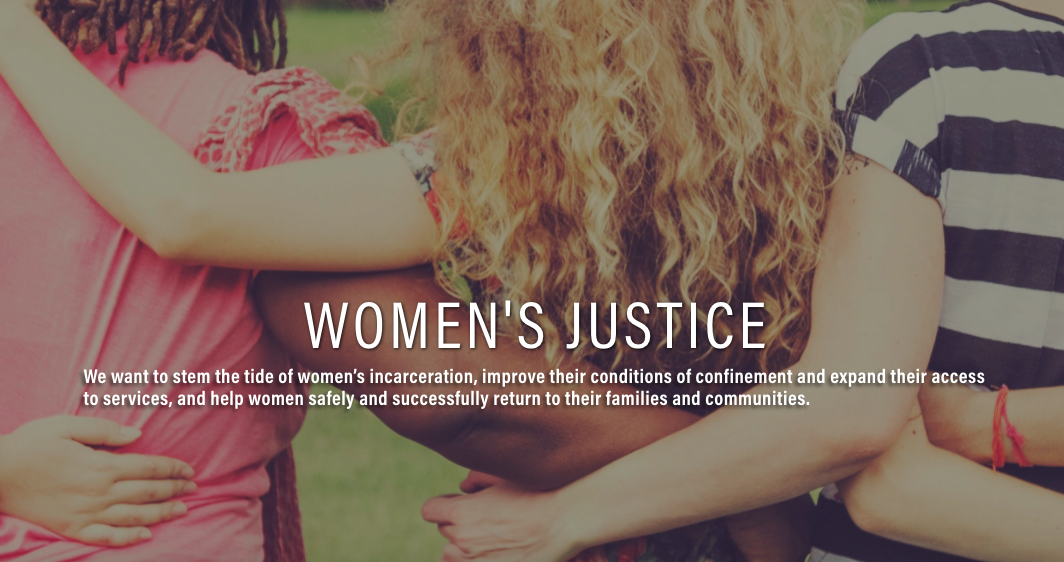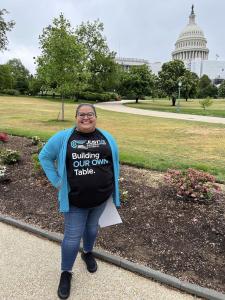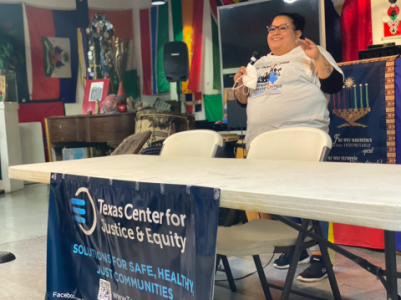Mother’s Day Update on TCJC’s “Justice for Women” Campaign

Last March, TCJC launched a Justice for Women campaign to urge the Texas Legislature to address the needs of women impacted by the criminal justice system. We kicked off the campaign with a 2-part report series, which found that the number of women in Texas prisons had grown by nearly 1,000 percent since 1980 (more than twice the rate of men), and that Texas now incarcerates more women by sheer number than any other state in the nation. Furthermore, a staggering 81 percent of women in Texas prisons are mothers, and nearly 200 women gave birth in the Texas Department of Criminal Justice (TDCJ) in FY 2016.
When a child loses a parent to incarceration, it can result in serious mental, physical, and emotional health issues. Children with one or both parents incarcerated are more likely to be placed in foster care or experience homelessness, and half of the children whose mothers are incarcerated will never be able to visit them during their time behind bars. Yet, for system-involved mothers, the development of a parent-child relationship helps support reduced recidivism, increased economic stability following reentry, and increased interest in rehabilitation. Intensive separation from children undermines the potential for positive outcomes for both mother and child.
The recommendations outlined in our report series called on the Legislature to address many of the unique issues facing women incarcerated in Texas, including mothers, pregnant women, and primary caretakers. As we near the conclusion of the state’s 86th Legislative Session, we can proudly say that the Legislature has joined us in standing up for these women.
What’s the state of women’s justice in Texas since our last report? Below is a breakdown of the women’s justice bills working their way through the legislative process.
As we continue to fight for incarcerated mothers this Mother’s Day, we invite you to join us in urging legislators and the Governor to pass these bills into law.
-
Bill Number: HB 650 [White, Klick, Howard, Neave, Meza | Sponsor: Whitmire]
TCJC Analysis: This bill takes various steps to improve outcomes for justice system-involved women:
- A trauma history screening upon intake, and referral to treatment as appropriate
-
Specialized correctional officer training related to care for pregnant women
-
Pregnancy and parenting classes
-
Nutritional support for pregnant women
-
Limits on invasive body cavity searches of pregnant women
-
A prohibition on shackling women while pregnant, unless needed to protect the woman, her unborn child or infant, or another person
-
A prohibition on solitary confinement for pregnant women and those who gave birth within the previous month, unless needed to protect the woman, her unborn child or infant, or another person, or to prevent escape
-
A prohibition on beds higher than three feet above the floor for pregnant women
-
72-hour post-delivery care, where the mother can remain with the infant and receive products necessary to care for the infant
-
Searches of rooms or areas in which women are not fully clothed to be conducted only by female correctional officers, with a written report to the warden if a search was conducted by a man
-
Free feminine hygiene products
-
A study and report by TDCJ on the effect of its current visitation policies on the relationship between incarcerated individuals and their children
Status: Passed both the House and Senate!
-
Bill Number: HB 812 [White | Sponsor: Whitmire]
TCJC Analysis: An incarcerated person must pay $15 per visit versus a $100 annual health services fee for medical care; that amount is capped at $100 per year.
Status: Passed the House and voted out of the Senate Criminal Justice Committee; awaiting a full vote by the Senate.
-
Bill Number: HB 1389 [Senfronia Thompson, White, Allen]
TCJC Analysis: The court must consider a person’s status as the primary caretaker of a child when determining sentencing, and can place the person on probation or deferred adjudication community supervision rather than incarcerate him or her. The court may also impose conditions that emphasize the person’s rehabilitation in a community setting and parent-child unity, and that provide support to the parent-child relationship.
Status: Passed the House and referred to the Senate Criminal Justice Committee.
-
Bill Number: HB 2168 [Allen; Reynolds; Yvonne Davis; Sherman, Sr.; Collier]
TCJC Analysis: TDCJ and county probation departments must screen each person at the time of intake to determine whether they have experienced adverse childhood experiences or other significant trauma, and refer the person to the appropriate medical or mental health care professional for treatment.
Status: Passed the House and pending referral to committee in the Senate.
-
Bill Number: HB 659 [White]
TCJC Analysis: TDCJ must maintain and annually update statistical information on the number of incarcerated individuals who are parents of a minor child or a child receiving education services. It must also annually report a summary of that information to the Texas Education Agency and the Department of Family and Protective Services.
Status: Passed the House and referred to the Senate Criminal Justice Committee.
-
Bill Number: HB 1374 [Hernandez, Neave, Guillen | Sponsor: Whitmire]
TCJC Analysis: TDCJ’s Community Justice Assistance Division may award a grant to a probation department to develop and operate a pretrial intervention program for defendants who are pregnant at the time of placement into the program, or who are the primary caretaker of a child under 18.
Status: Passed the House and voted out of the Senate Criminal Justice Committee; awaiting a full vote by the Senate.
-
Bill Number: HB 1651 [Mary González, White, Charles “Doc” Anderson | Sponsor: Alvarado]
TCJC Analysis: The Texas Commission on Jail Standards (TCJS) must adopt rules and procedures for county jails to address various concerns involving pregnant women, including obstetrical and gynecological care, needs during labor, the use of restraints. Restraints are prohibited during pregnancy and for 12 weeks after birth, with certain exceptions for health and safety. Separately, each county jail must annually submit a report on their use of restraints during the preceding calendar year.
Status: Passed the House and voted out of the Senate Criminal Justice Committee; awaiting a full vote by the Senate.
-
Bill Number: HB 2169 [Allen, Rosenthal, Wu, Ramos, Neave | SP: Whitmire]
TCJC Analysis: TCJS must establish minimum standards for the quantity and quality of feminine hygiene products provided to incarcerated women, to include pads and tampons. Each county jail’s monthly report to TCJS must include information on the number of women confined.
Status: Passed the House and voted out of the Senate Criminal Justice Committee.
-
Bill Number: HB 2701 [White, Ramos]
TCJC Analysis: The Texas Commission on Law Enforcement (TCOLE) must adopt a training program for county jailers on interacting with incarcerated pregnant women, based on obstetrical and gynecological best practices and including information on pregnancy, labor, delivery, recovery, pre- and post-natal care, and factors that increase the risk of miscarriage. A person cannot be appointed as a county jailer, except temporarily, unless they have satisfactorily completed that training program. County jailors must be provided this training by a medical professional once every 48 months.
Status: Passed the House and referred to the Senate Criminal Justice Committee.
-
Bill Number: HB 3227 [Howard, Jarvis Johnson, Allen, White]
TCJC Analysis: TDCJ must develop and implement policies that increase an incarcerated woman’s access to programs offered while in custody – including educational, vocational, substance use treatment, rehabilitation, life skills training, and prerelease programs. TDCJ may not limit incarcerated men’s access to programs to meet these requirements. TDCJ must annually publish a report describing any internal policies that were created, modified, or eliminated to meet these requirements, and listing programs available to incarcerated women during the preceding year.
Status: Passed the House and referred to the Senate Criminal Justice Committee.
This tremendous demonstration of support from the Texas Legislature has the potential to create real and lasting change for women impacted by Texas’ criminal justice system, as well as their children, families, and communities. But these bills still have not yet become law! If you want to see these bills make it to the Governor’s desk, call your Texas State Representative and Senator and let them know you support women’s justice!
To find out who represents you, visit https://wrm.capitol.texas.gov/home.



